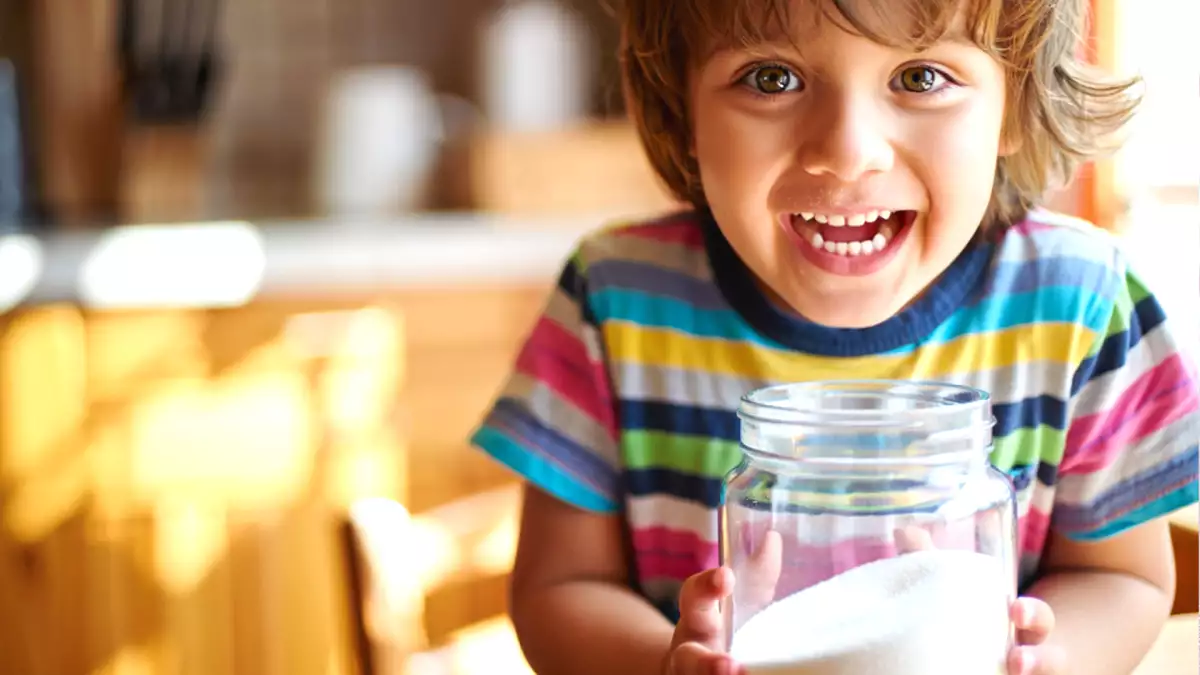Sugar and hyperactivity in children: what does the science really say?

"Don't give him too much sugar or he will become unmanageable!"
How many times have you heard this phrase at a birthday party or during a snack? The link between sugar and hyperactivity in children is one of the most common myths in popular culture.
But what is true about it? Science has tried many times to answer this question, and surprisingly, the results do not confirm the common opinion. In this article we delve together into the scientific evidence on the topic, dispelling myths and offering useful, evidence-based advice.
Sugar and the brain: how it really works
Sugar is a simple carbohydrate, found naturally in many foods and added in others. Once ingested, it is rapidly converted into glucose, the main source of energy for the body's cells, including the brain. It is normal, then, to wonder whether too much sugar can "overload" children, making them more excited or agitated.
The reality, however, is different. Our bodies regulate blood glucose levels very precisely, avoiding sudden surges and maintaining a metabolic balance. A piece of candy or a slice of cake is not enough to trigger hyperactive behavior. At least, not according to science.
What science says: no evidence of a direct link
Scientific research in recent decades has addressed this question rigorously, often with controlled, double-blind studies. The results are surprisingly consistent:
- A study published in the Journal of the American Medical Association (Wolraich et al., 1995) analyzed numerous previous papers and concluded that there is no scientific evidence linking sugar and hyperactivity, even in children with ADHD.
- Other studies have shown that when parents believe their child has ingested sugar, they tend to overestimate agitated behaviors, even if sugar was not actually administered.
These findings highlight a key point: the problem may not be the sugar, but the way we interpret it.
The power of expectations: when the mind creates the myth
One of the most interesting aspects to emerge from the research is the behavioral placebo effect. When a parent expects a food to cause a certain reaction, he or she is more likely to interpret the child's behavior in a manner consistent with that expectation.
In a study conducted by Hoover and Milich (1994), parents were told that their children had consumed sugar, but it was actually placebo. Despite this, the parents rated the children as more active and less manageable.
This is a classic example of a "self-fulfilling prophecy": believing that a sweet will make a child hyperactive can lead to seeing signs of agitation even when these are not really present or caused by food.
Sugar: the real damage to children's health
All this does not mean that sugar should be consumed without limit. However, excessive intake is harmful, especially in children. The main problems associated with its excessive consumption include:
- weight gain and risk of childhood obesity
- risk of type 2 diabetes
- dental caries
- poor nutritional quality of food
But blaming hyperactivity risks diverting attention from real problems, such as lack of sleep, family stress, or lack of clear rules in daily routines.
In Brief
The science is clear. There is no evidence that sugar causes hyperactivity in children. Widespread beliefs stem more from misperceptions and cultural factors than from actual evidence.
Dismantling this myth does not mean encouraging sugar abuse, but bringing the focus back to what really matters: a balanced diet, a peaceful family environment, and the ability to listen to the real needs of young children.
 Eva Alberghetti
Eva Alberghetti
Comments